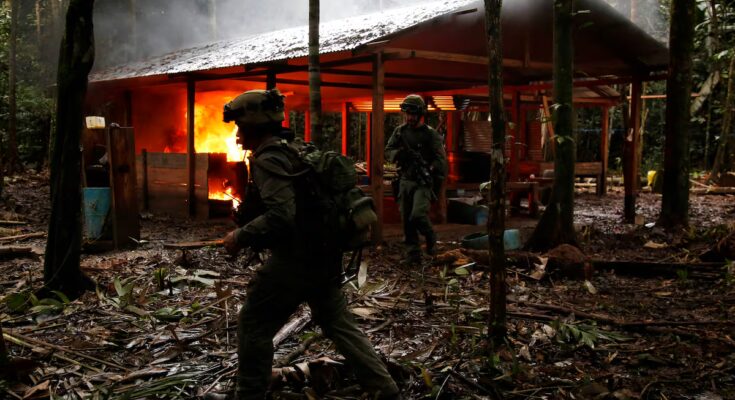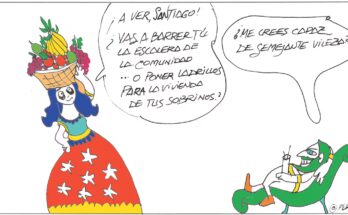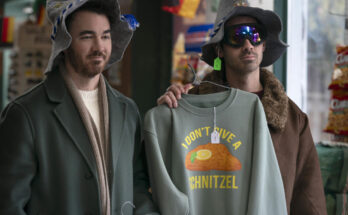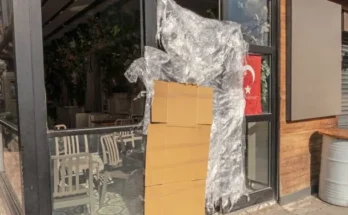This Saturday morning begins with sad news for Colombia. The Office of the Ombudsman, the body responsible for guaranteeing human rights, has confirmed what until now was only a possibility: six minors died in a military bombing that occurred this week in the jungle department of Guaviare. They are victims of forced recruitment, explained the director of the institution, Iris Marín. This information confirms that President Gustavo Petro, who has resumed airstrikes against camps of illegal groups that he had suspended when he came to power in 2022, has given instructions to exercise acts of force that, according to experts, violate several principles of international humanitarian law (IHL) and which are modeled on operations that the current president and his left-wing allies had strongly criticized when they were carried out by his predecessor, the right-wing former president Ivan Duque.
This week, military forces carried out two aerial bombings against the headquarters of groups of so-called FARC dissidents, under the orders of Gregorio Vera, better known by his pseudonym Ivan Mordiscoone in Arauca, near Venezuela, and the second in Guaviare. In the second, the subsequent ground operation led the military to find four minors who had survived the attack, which raised fears that several minors were among the 19 killed by the bombs. Both Petro and his defense minister, retired general Pedro Sánchez, reacted by assuming it was a possibility, which Marín reveals to be the reality.
“No recruited child or adolescent should be affected by military operations. The simple fact that they are in the camps of illegal armed groups and have lost their civilian status and have become combatants, i.e. with continuous combat functions, does not allow the possibility of an attack,” Marín says in his statement, in which he also highlights Mordisco for using minors as war shields.
The president assured Thursday, during the police ceremony, that attacks “always present a risk” and that, if intelligence fails, “it can fall on minors”. “This is the big risk that only the president takes. No official takes it. I am the one who makes the decision,” he said. His minister, meanwhile, went further: “Whoever gets involved in hostilities loses all protection, without any distinction. What kills is not age, it is the weapon itself,” he said in statements to the media this Friday. These are positions in open contrast to what Petro denounced as a senator opposed to Duque, when he stated that the deaths of minors in air attacks were “war crimes” and “child murderers”.
Experts consulted by this newspaper before learning of Marín’s announcement did not hesitate to classify any death of a minor as a violation of international humanitarian law, the set of conflict rules that Colombia has accepted as an international obligation. These rules oblige the State to apply principles such as distinction – separation between armed agents and civilians – or proportionality – it must respond to a threat with a similar use of force – which could have been violated in this case. Minor fighters also tend to be victims of forced recruitment or being tricked into joining the ranks of illegal Colombian groups, which have been steadily growing and strengthening for several years.
Although the airstrikes are an example of state power, they also highlight the need to resort to combat strategies more against regular armies, concentrated in barracks and clearly identified as combatants, than against criminal gangs such as those that prevail in Colombia today, which are more camouflaged, less hierarchical and often live in populated places, not in armed bases.
The confirmation of the death of six boys, girls and teenagers in the Guaviare attack leaves Petro in an uncomfortable situation. He repeatedly and forcefully criticized the 20 US air strikes against suspected drug boats in the Caribbean Sea and Pacific Ocean, resulting in 80 deaths, which he called “extrajudicial killings” and “violations of international law,” in agreement with experts and human rights organizations such as Amnesty International, Human Rights Watch or the United Nations. For the moment, neither the president nor the minister have explained what intelligence information they had to carry out the attack, nor what precautions they took to ensure that there were no minors who could have been victims of the bombs.



